Events & Promotions
| Last visit was: 26 Apr 2024, 07:52 |
It is currently 26 Apr 2024, 07:52 |

Customized
for You
Track
Your Progress
Practice
Pays
02:00 PM EDT
-03:00 PM EDT
03:00 PM PDT
-04:00 PM PDT
07:00 PM PDT
-08:00 PM PDT
08:00 AM EDT
-09:00 AM EDT
10:00 AM PDT
-12:00 PM PDT
| FROM Stacy Blackman Consulting Blog: Which Firm has the Most Former M7 MBA Admissions Officials in the World? |
|
[img]https://www.stacyblackman.com/wp-content/uploads/sbc-meetstacy-1024x367.jpg[/img] The results are in, and Stacy Blackman Consulting (SBC) ranks #1 out of eleven firms in this [url=https://poetsandquants.com/2021/09/24/bragging-rights-this-mba-admissions-consulting-firm-boasts-the-most-former-m7-adcoms/]investigative overview[/url] by John Byrne, founder of leading MBA news site Poets & Quants. SBC has the most former M7 MBA admissions officers, more than 99 years of collective expertise, and is the only firm with a complete panel of former MBA admissions officers from the M7 programs. All told, SBC has 21 former members of M7 admissions offices, including a trio from [url=https://www.stacyblackman.com/mba-application-advice/harvard-business-school/]Harvard Business School[/url] and [url=https://www.stacyblackman.com/mba-application-advice/stanford-graduate-school-of-business/]Stanford Graduate School of Business[/url]. For the uninitiated, the M7 or “Magnificent 7” business schools are: Harvard Business School, Stanford Graduate School of Business, Wharton School, Columbia Business School, Chicago Booth School of Business, MIT Sloan School of Management, and Kellogg School of Management. These seven US business schools are renowned for providing a high-quality graduate management education as well as access to stellar career opportunities. SBC is also thrilled to celebrate its 20th year in the MBA admissions consulting business in 2021. “The caliber of our MBA consulting team is the reason why our firm has thrived for two decades,” says founder Stacy Blackman. “Our clients consistently tell us that they have chosen us as their admissions partner because of our team quality and inside knowledge.” A Labor of Love [img]https://www.stacyblackman.com/wp-content/uploads/meg_s.jpg[/img] As Senior SBC Consultant and former Booth AdCom Meg Stiphany shares in the P&Q profile, “We have a lot of firepower on the team as a whole. If there’s a question I have about a person who is applying to Harvard, I can put it out to the entire group and get three to five responses within half an hour and they are all coming from people who have worked in admissions at M7 schools.” Stiphany also notes that the work is a labor of love. “Anyone who chooses to go into consulting not only brings the understanding of how it all works, they also have a bit of a servant’s heart,” she says. “They want to give a high touch experience to their clients. This is in their heart. There is a passion for thinking through how this client will fit into the program. It is very personal. It is humbling,” says Stiphany. “Not everyone should be a coach. It takes a special type of person. Stacy has figured out who the people are who have that heart and soul to bring that high touch ethos to life.” [url=https://www.stacyblackman.com/contact/]Request a free MBA analysis of your candidacy and how our team can help you.[/url] The post [url=https://www.stacyblackman.com/former-m7-mba-admissions-officials/]Which Firm has the Most Former M7 MBA Admissions Officials in the World?[/url] appeared first on [url=https://www.stacyblackman.com]Stacy Blackman Consulting - MBA Admissions Consulting[/url]. [img]https://feeds.feedburner.com/~r/StacyBlackman/~4/4MT6iKmphjw[/img] |
| FROM Stacy Blackman Consulting Blog: SBC’s New MBA Social Impact Accelerator Receives Rave Reviews |
|
[img]https://www.stacyblackman.com/wp-content/uploads/pexels-markus-spiske-2990644-734x489.jpg[/img] Stacy Blackman Consulting recently launched a unique offering: the MBA Social Impact Accelerator Package. We’re proud to say that this is the first MBA consulting bundle in the world tailored to the distinct needs of social impact applicants—and we’re thrilled with the response from applicants so far. (For a three-minute video overview of the program, please click [url=https://video214.com/play/hvAWFTj0IhgYdbnwR5l4aQ/s/dark]here[/url].) “The MBA Social Impact Accelerator materials are very useful and my consultant’s guidance on my essays has been INCREDIBLE. I seriously don’t know how he does it… yesterday he literally spent 25 minutes sharing comments and suggestions about an essay I was working on—and his insights helped me transform the entire piece. With his guidance, I am confident I can take my writing to a whole new level and make this essay the very best version of itself.” –SBC Round 1 Applicant, 2021 What is the MBA Social Impact Accelerator package? SBC’s bold new offering centers on social impact-focused applicants and pairs our one-on-one consulting model with a suite of supplemental resources. We created the Accelerator in collaboration with [url=https://www.stacyblackman.com/consultant/chandler/]Chandler Arnold[/url]—a Stanford GSB/HBS dual admit, 20-year serial social entrepreneur, and longtime SBC partner. Chandler and the team have combined their decades of experience with extensive input from MBA admissions officers, social impact leaders, and purpose-driven students and alums from the world’s top business schools. [img]https://www.stacyblackman.com/wp-content/uploads/pexels-markus-spiske-2990645-734x489.jpg[/img] SBC recognizes the financial constraints that social-impact-focused applicants may face. That’s why we’re proud of both the power of this program—and the fact that this product is priced more affordably than other offerings. [b]Who should accelerate?[/b] The MBA Social Impact Accelerator is for applicants with a demonstrated past commitment to social impact work. By this, we mean a full-time position at a nonprofit organization or a full-time job focused on social impact in the government or at a private-sector enterprise. These are candidates who plan to expand their social impact and advocacy work via their MBA program experience. Interested clients will need to demonstrate their commitment to social impact by sharing their resume and a brief statement explaining why they should be considered for the Accelerator. [img]https://www.stacyblackman.com/wp-content/uploads/pexels-yan-krukov-8199173-734x489.jpg[/img] [b]What is included?[/b] This MBA Social Impact Accelerator pairs individual one-on-one consulting with a suite of new resources designed to guide social impact-focused applicants through each element of the application, including: [list] [*][b]The MBA School Selection Guide for social impact-focused applicants. [/b]This 35-page resource analyzes social impact initiatives at 15 of the country’s top MBA programs, along with spotlights on faculty, courses, and clubs that might interest purpose-driven candidates. The guide also includes behind-the-scenes tips and suggestions from students and alumni from each program. [/*] [*][b]Five 40-minute Inside Track videos [/b]with advice from top admissions officers focused on resume writing, short and long-term goal planning, letters of recommendation, essay writing, and interview prep.[/*] [*][b]Five Inside Track working modules. [/b]To make the most out of every minute with your consultant, these modules offer tips and exercises aligned with the Inside Track videos to get a jump-start on your application.[/*] [*][b]One-on-one time with your consultant, [/b]including scalable options, gives you precisely the number of hours you need.[/*] [/list] [b]How much does this cost? [/b] We’ve priced these product options with accessibility in mind, recognizing that many social impact-focused applicants face financial constraints. The MBA Social Impact Accelerator Package costs $4,500 and includes the above resources, plus 12-to-13 hours of individual consulting with an SBC team member passionate about social impact. Applicants purchasing this package can also add any number of additional consulting hours to meet their exact consulting needs. The MBA Social Impact Accelerator Supplemental Resources (without the consulting hours) are also available a la carte for $795. [b]What are clients saying? [/b] We’ve been thrilled by the positive response to this offering by social impact-focused applicants, who had this to say about their experiences: My consultant was an absolute pleasure to work with on the MBA Social Impact Accelerator program. He was deeply knowledgeable about the social impact space, responsive, and very insightful. As someone from a non-traditional background, I didn’t know all the particulars of how to approach the MBA process, and he was very helpful, especially with my essays, and giving me insightful advice related to social impact goals. Perhaps most importantly, my consultant also gently pushed me to lean into my unique strengths and to tell my story in my most authentic way throughout the process. I just submitted my applications, and I feel so much more confident about what I have put together thanks to this offering. More broadly, as someone with deep knowledge of the social impact space, my consultant also shared powerful career guidance I will take with me long after the application process is over! I strongly recommend this program to anyone applying to business school who is passionate about social impact. —Sarah, 2021 Round One Applicant *** I started working with my consultant a few weeks ago and wanted to reach out to say thank you. The MBA Social Impact Accelerator materials are very useful, and my consultant’s guidance on my essays has been INCREDIBLE. I seriously don’t know how he does it. Yesterday he literally spent 25 minutes sharing comments and suggestions about an essay I was working on—and his insights helped me transform the entire piece. With his suggestions, I am confident I can take my writing to a whole new level and make this essay the very best version of itself. My work with my consultant has already been one of the most valuable investments I have made on my MBA journey. Even though we are still in the middle of our work together, I am certain that collaborating with my consultant has improved my application immensely, much more than I could have done on my own! —Ty, 2021 Round One Applicant *** Please note: Space for the MBA Social Impact Accelerator Package is limited. These openings will fill up on a first-come, first-served basis. Want to learn more? Check out this three-minute [url=https://video214.com/play/hvAWFTj0IhgYdbnwR5l4aQ/s/dark]overview video[/url] or [url=https://www.stacyblackman.com/b-schooled-podcast-episode-60-calling-all-social-impact-applicants/]listen to our B-Schooled podcast[/url] about the MBA Social Impact Accelerator. You are also welcome to reach out to us at [email=info@stacyblackman.com]info@stacyblackman.com[/email] or by calling 866.667.8229. The post [url=https://www.stacyblackman.com/sbcs-new-mba-social-impact-accelerator-receives-rave-reviews/]SBC’s New MBA Social Impact Accelerator Receives Rave Reviews[/url] appeared first on [url=https://www.stacyblackman.com]Stacy Blackman Consulting - MBA Admissions Consulting[/url]. [img]https://feeds.feedburner.com/~r/StacyBlackman/~4/huHU9ybk0WM[/img] |
| FROM Stacy Blackman Consulting Blog: Tuesday Tips: HEC Paris Essays and Tips for 2021-2022 |
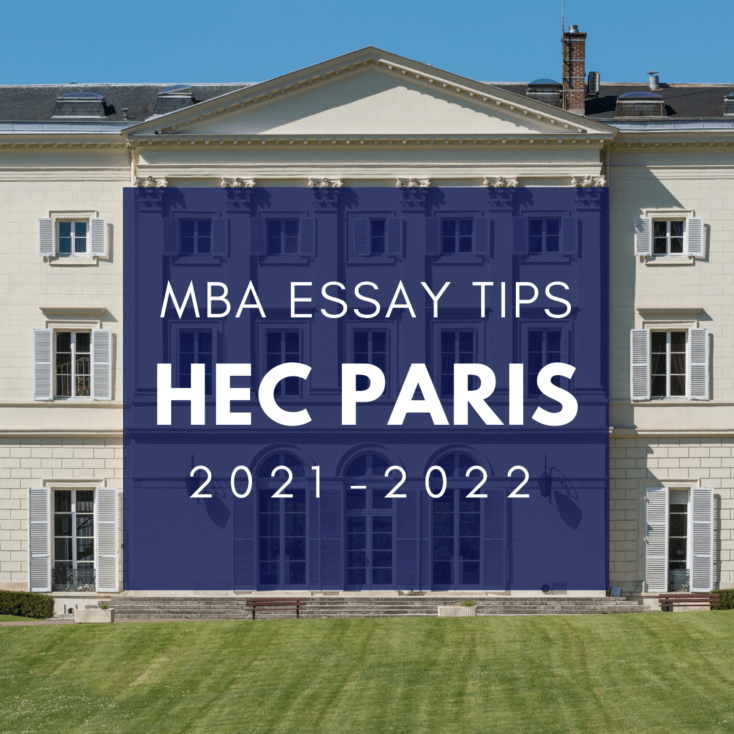 HEC Paris essays focus on your ethics and values. A fantastic location in Paris and a robust leadership education distinguish the HEC MBA. HEC Paris boasts a high number of CEOs in its alumni community. Another distinction is an entrepreneurial spirit. HEC Paris consistently ranks as one of the top MBA programs in the world. If your life and career are based in Europe, HEC is worth a closer look. And, even if you are primarily United States-based, think about adding a European MBA program to your list. Don’t hesitate to contact us to learn more about how Stacy Blackman Consulting can help with your HEC Paris essays. For more details on the HEC Paris essays and application requirements, visit the HEC Paris website. HEC Paris Essays for 2021-2022 Essay 1: Why are you applying to the HEC MBA Program now? What is the professional objective that will guide your career choice after your MBA, and how will the HEC MBA contribute to the achievement of this objective? (500 words max.) Describing your career goals is the first task in this HEC Paris essay. Also, why now is the right time for an MBA, and why HEC Paris is your choice. Also, you will want to explain past experiences, but avoid reciting your resume. In addition, think about the critical moments in your career that can highlight your skills. Focus on some mini-stories to tell. Then, you can explain your career choice with specifics. Within which industry do you want to work? What will be your function (marketing or finance, for example)? Do you have any desires for location and aspirations to impact the global economy? Also, note that HEC Paris has successfully assisted students with career changes and entrepreneurial dreams. If you are looking for a new career after your MBA, HEC may be the perfect place. Thorough school research will help you make the case to the admissions committee. Also, you should explain the classes, professors, and student activities that will help you achieve your goals. 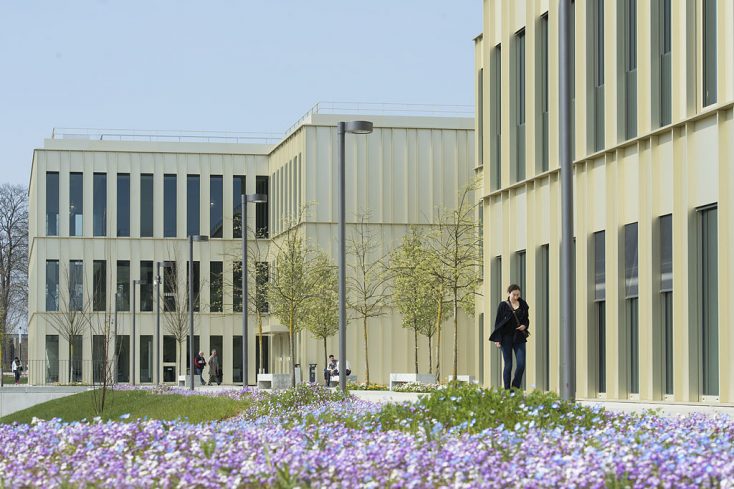 Essay 2: What do you consider your most significant life achievement? (250 words max.) HEC Paris is looking for leaders. In the second of the HEC Paris essays, describe an experience that demonstrates leadership. Consider that there is no time limit to this essay. For instance, you could explore something formative that happened to you as a teenager or an achievement from last week. Also, when selecting an example, think about an accomplishment that demonstrates who you are. And, also shows a moment that changed the course of your life. For example, perhaps you were given an assignment at work that was beyond your capabilities. That experience may have taught you how to leverage the expertise of a team. Or, it may have forced you to research and learn on your own. Think about the achievements that stretched your abilities and taught you the most. A leadership example can also show how you helped a team achieve its best work. Essay 3: Leadership and ethics are inevitably intertwined in the business world. Describe a situation in which you have dealt with these issues and how they have influenced you. (250 words max.) Because ethics are so important, the third in this set of HEC Paris essays focuses on this issue. As a future leader, ethics can determine how well your company performs. When you look at the devastating results of the 2008 financial crisis, or recent security breaches at major tech companies, it is clear that ethics can influence business. In your career, you have likely encountered colleagues or leaders who did not adhere to ethical behavior. When you have come across a moral dilemma, how did you handle it? Explain the situation and how you felt, what you did, and the outcome. Ideally, you have learned a lesson as a result of the experience. Finally, consider your overall approach to leadership and ethics. Essay 4: Imagine a life entirely different from the one you now lead. What would it be? (250 words max.) This HEC Paris essay is a creative way to explore your character and core personality. When you think about the opposite of who you are today, it shows how you view yourself. Where would a person leading an entirely different life live? What career would they pursue? What would be their family responsibilities? Think about asking your friends and family what they think as a thought starter. Describe this alternative life with as many specifics as possible, and use the exercise to clarify your core values.  Essay 5: Please choose from one of the following essays, 250 words max.: a) What monument or site would you advise a first-time visitor to your country or city to discover, and why? b) Certain books, movies, or plays have had an international success that you believe undeserved. Choose an example and analyze it. c) What figure do you most admire and why? You may choose from any field (arts, literature, politics, business, etc.) Of all the HEC Paris essays, this one provides options to share your strong opinions and personality with the admissions committee. For instance, you can choose to describe your country or city, discuss an art piece, or a leader you admire. Honestly, any of the choices can showcase an aspect of your personality. Overall, the goal is to differentiate yourself. Consider the best option for your unique background. For example, if you live in a small country or city rarely visited by tourists, describe a monument or site. In this way, using the essay to describe your city or country can further explain your background. On the other hand, if you choose a public figure you admire, you could explore your leadership ideas. Or, perhaps you admire persistence, or overcoming obstacles, or helping others. Use those ideas to explore your core values. Finally, whichever option you choose, get personal! Essay 6 (Optional): Is there any additional information you would like to share with us? (900 words max.) This HEC Paris essay gives you space to describe any additional information you would like to provide to the admissions committee. Generally, optional essays are for any confusing or concerning information in your application. In this case, you may use this essay to provide positive details as well. You may have a story about leadership or another achievement you would like to highlight. If so, this is a place to tell that story. If you have described your core values in any of the above, you may be able to reinforce that story with this essay. This is the essay to use if you need to explain an academic issue, low GMAT, recommender issue, or gap in work experience. It is far better to clarify any problems in your application than to leave the admissions committee to guess what happened. Explain your issue clearly and focus most of the essay on the correction employed. For example, if you had a low grade in a quantitative course in college, spend most of the essay describing how you have shown academic promise since then, rather than focusing on the negative. Avoid blaming anyone else for your issue. Instead, explain why this one incident is in your past and will stay there. You may skip this essay if you do not have another story to tell or an incident in the past to explain. Remember that it is optional. The post Tuesday Tips: HEC Paris Essays and Tips for 2021-2022 appeared first on Stacy Blackman Consulting - MBA Admissions Consulting. |
| FROM Stacy Blackman Consulting Blog: B-Schooled Podcast Episode #76: What to Do After a Ding |
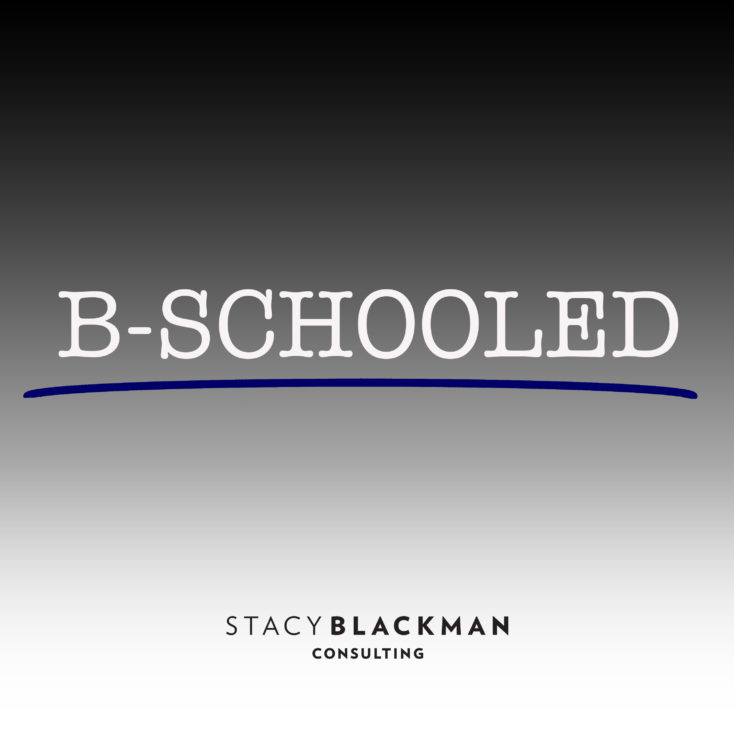 Yesterday, thousands of MBA hopefuls around the world got the news they didn’t want to hear: they were dinged from Harvard Business School. As HBS kicks off Round 1 2021-22 application-year results, many applicants might find themselves panicking about their materials, rethinking their essay strategies, doubting their efforts, or otherwise quickly losing confidence. This episode focuses on why you should not do any of those things, and also covers several productive actions you can take if you receive a ding. Episode #76 is here for you to listen to, or can also be found on any of the podcast apps linked below. B-Schooled is available on most major podcast apps, including: Apple Podcasts Spotify Stitcher TuneIn Please be sure to subscribe to B-Schooled so that you don’t miss a thing. Also, if there’s something you’d like for us to cover in a future episode, please email podcast@stacyblackman.com. We’d love to hear from you! The post B-Schooled Podcast Episode #76: What to Do After a Ding appeared first on Stacy Blackman Consulting - MBA Admissions Consulting. |
| FROM Stacy Blackman Consulting Blog: Volunteering Can Boost Your Career–and MBA Admissions Odds |
|
[img]https://www.stacyblackman.com/wp-content/uploads/best-gift-is-you-dakota-corbin-xh4mG4cqHGg-unsplash-734x718.jpg[/img] “Fresh Ideas from the Blacklight” SBC’s Weekly Newsletter for Professionals We probably don’t need to sell you on the [url=https://www.happiness.com/magazine/personal-growth/why-volunteering-is-important-benefits/]karmic benefits[/url] of donating your time for a worthy cause. But besides all the feels you get for helping others, there’s a surprising side benefit you may not have considered. Namely, that volunteering is one of the most underleveraged ways to advance in your career. Today, we focus on skills-based rather than classic volunteer activities, such as planting trees or serving meals at a soup kitchen. Strategic volunteering exposes you to diverse industries and functions, helps identify your strengths, builds connections, and provides valuable new skills and experiences. Check out these three major professional benefits you can get when you give back. [img]https://www.stacyblackman.com/wp-content/uploads/analia-baggiano-egbB-zLBeDo-unsplash-734x734.jpg[/img] Volunteering Develops New Skills As a volunteer, you can try out new skills without worrying about affecting your current position. For instance, your job may not include project management or give you much chance to grow your leadership ability. If so, look for a volunteer position that provides formal leadership to others. Many volunteering roles will help you hone those always-desirable soft skills. Think of areas such as communication, public speaking, emotional intelligence, and teamwork. You can also look for opportunities where you’ll make an impact with your existing skills. For example, the [url=https://theblacklight.co/2020/11/12/advice-tips-network-pandemic/]pandemic[/url] has underscored the value of technology and virtual volunteering. Showing how you use those skills for good would be an attractive addition to your resume. [img]https://www.stacyblackman.com/wp-content/uploads/young-teaching-old-734x490.jpg[/img] If the goal is to qualify for future roles or switch careers entirely, be selective. Focus on finding places where you can build expertise that makes you a more desirable candidate for your next job. It Can Offer Relevant Career Experience It’s often difficult to gain job experience without getting hired for the new role. Whether you’re a recent grad or hoping to try out a new career without making a long-term commitment, volunteering is a tried-and-true method of gaining relevant knowledge in a new field. The key is identifying positions and organizations that align with your desired career. That way, you can show potential employers that you have transferable skills despite limited or no formal professional history in the role. At the same time, it gives you valuable feedback on whether you enjoy the work and want to explore further. If you discover that you don’t relish the tasks involved, you’ve saved yourself a lot of angst down the line. “The best way to find yourself is to lose yourself in the service of others” – Gandhi Volunteering Expands Your Network Chances are, most of your [url=https://theblacklight.co/2020/11/12/advice-tips-network-pandemic/]network[/url] comes from the same industry you do. But strategic volunteering connects you with diverse people coming together for a common goal. This creates a unique opportunity to expand your network with connections outside of your field. [img]https://www.stacyblackman.com/wp-content/uploads/pexels-alexander-suhorucov-6457515-734x489.jpg[/img] Unlike those [url=https://theblacklight.co/2020/02/27/5-networking-mistakes/]typically awkward[/url] formal networking events, the volunteering environment is usually open and friendly. It’s a place to forge meaningful connections with people who have shared interests without pressure or expectations. That said, you’re still networking with people who may help your job search or provide professional references one day. So, make it your business to meet as many people as you can while volunteering—you never know who’s connected to exciting new prospects. Of course, your primary reason for volunteering is still to share your skills and give back to your community. But why not also reap some professional advantages along the way? *** Huzzah! You made it to the end of the post! This tip sheet on the career benefits of volunteering appeared initially on [url=https://theblacklight.co/newsletter/]the Blacklight[/url], our weekly newsletter for professionals. At the Blacklight, we [url=https://www.stacyblackman.com/blacklight-career-hacks-life-inspo/]aim to illuminate[/url] with every dispatch that lands in your inbox. If you’re thirsty for guidance to help you slay it at work or as a student and move your goalposts closer, [url=https://theblacklight.co/]sign up[/url] today! The post [url=https://www.stacyblackman.com/volunteering-boost-your-career-mba-admission/]Volunteering Can Boost Your Career–and MBA Admissions Odds[/url] appeared first on [url=https://www.stacyblackman.com]Stacy Blackman Consulting - MBA Admissions Consulting[/url]. [img]https://feeds.feedburner.com/~r/StacyBlackman/~4/Mn-5nD-qH00[/img] |
| FROM Stacy Blackman Consulting Blog: Get the 411 on the Stanford MSx Program |
|
[img]https://www.stacyblackman.com/wp-content/uploads/Stanford-GBS-Knight-Management-Center-734x486.jpg[/img] Are you a mid-career professional seeking a transformational experience as fast as possible? The Stanford MSx program may provide that career boost you need. As an accelerated master’s program, you’ll spend one year reflecting, connecting, and refining your professional goals. “There is only one Stanford and only one Silicon Valley,” says a current MSx student. “I came to the GSB with a question of how we can merge tech with human connection.” In the fall of 2021, representatives from the Stanford MSx program spoke with John A. Byrne, founder of Poets & Quants, about [url=https://poetsandquants.com/calendar/october-1-2021/?pq-directory-type=calendar]the program’s merits.[/url] Here we share facts and insights with you. [img]https://www.stacyblackman.com/wp-content/uploads/Stanford-MsX2.png[/img] Overview of Stanford MSx The Stanford MSx program is a Master of Science in Management for Experienced Leaders. It is a one-year immersive, residential program, where students have access to the University’s seven schools (e.g., engineering, education) and the new school of sustainability, opening soon. Created for mid-career professionals, MSx enrolls about 80 students per cohort. The campus is in the heart of Silicon Valley, perhaps the most dynamic and exciting economy in the world. “Stanford is a magnetic field that attracts the best of the best talent from around the world,” shared a recent alum of the Stanford MSx program. “We’re all in it together. The vested interest in the tribe in making everyone successful is a hallmark of the Stanford MSx program.” [img]https://www.stacyblackman.com/wp-content/uploads/Stanford-MsX-1.png[/img] Upcoming Program Deadlines for 2021-2022 [b]Round 1 MSx [/b] Application due: October 14, 2021 Decision released: December 9, 2021 [b]Round 2 (Joint)[/b] Application due: January 5, 2022 Decision released: March 31, 2022 [b]Round 2 (MSx only)[/b] Application due: February 15, 2022 Decision released: March 31, 2022 [b]Stanford MSx Application Essay Prompts[/b] [list] [*]What matters most to you, and why? For this essay, we would like you to reflect deeply and write from the heart. Once you have identified what matters most to you, help us understand why. You might consider, for example, what makes this so important to you? What people, insights, or experiences have shaped your perspectives?[/*] [*]Why Stanford MSx, and why now? Please describe your aspirations and how your Stanford MSx experience will help you realize them. Why is this the right time for you to pursue your master’s degree at Stanford GSB?[/*] [/list] Stanford MSx Acceptance Rate As noted by Poets & Quants, “Acceptance rates are almost always more generous in one-year programs as well. Stanford’s MSx program, a great option for ‘older’ professionals aged 30 to 34, accepts about one in four applicants. That contrasts with the puny 6.1% acceptance rate for its two-year program.” [img]https://www.stacyblackman.com/wp-content/uploads/Stanford-MsX3.png[/img] [b]Program and Coursework Design[/b] The core curriculum educates on business fundamentals, and half of the program is customizable. Students are encouraged to sample widely, try everything, and then think of one or two areas to dive deep. As a result, students become completely engaged with this fully immersive program. “I’m currently not juggling another job. I can be really all-in and that’s accelerated the learning and given me the opportunity to say yes more than I would have otherwise,” said current MSx student Kate French. [img]https://www.stacyblackman.com/wp-content/uploads/Stanford-MsX-Kate-French.png[/img] There are also many different community-building activities for students, such as Indian and Japan night, as well as immersive trips to New York, Washington DC, etc., where participants forge life-long relationships. As one alum explained, it’s like, “Getting a PhD in self awareness and it’s probably the last time in your life—in your mid 30s or 40s—where you can make lifelong friends.” Design thinking, machine learning, artificial intelligence, data analytics are among the course topics available. New Venture Strategy is a course taught by a famous trio of teachers. Experiential classes are abundant. Cardinal Ventures or DormRoom courses are incubator courses. “Evidence-based life design” is the power of each of the MSx courses, shared by a recent alum. MSx offers Startup Garage, Lean LaunchPad, TechX, and many more entrepreneurial classes. For example, Startup Garage is an iconic course at Stanford for anyone wanting to experience entrepreneurship. MsX educates on a combination of design thinking and business management principles. Doordash started out of a Startup Garage course. Interpersonal Dynamics (or touchy-feely) is also a well-known class that MSx students take with MBA students. Ten people sit in a circle talking about thoughts and emotions–about self and how others think of you. Students learn many things about life and work. Fun Fact: 60% of students at MSx have children. Origin of the Program It’s a strategic priority at Stanford to have an impact beyond the core MBA program. Stanford wants to spread its knowledge more widely, including for mid-career executives, and more thoughtfully than its shorter Exec Education programs. MSx has been around for 60 years and has always been part of the GSB. It started as the Sloan program, and students still refer to it as Sloan Fellows. ROI of Stanford MSx The opportunity costs are higher for mid-career professionals, as many have young families. It’s one year of focusing on your career: accelerating your career or transitioning to a new path, such as entrepreneurship. Students can expect to receive a top-notch education and an incredible cohort of classmates, along with a broader set of people at the GSB to learn from, network, and stay in touch with lifelong. As a highly collaborative school, MSx students mix with students from all three programs—MBA, Ph.D., and MSx—and support each other through group work and student-led activities. The ‘Success for All’ Ethos Kate French, who began in January, shared, “I had on the ground experience but my skills were not seen as transferable. I wanted to expand horizons, get business acumen and have the opportunity to meet a large number of people. The beauty of the program is that your focus changes, you may get an idea of what you may want initially but then you can expand more broadly. “The program has exceeded my expectations. I have increased confidence through opportunities to constantly meet new people. There is constantly an opportunity to know people on a deeper level and those people want to get to know you.” “The program has broadened what I thought was possible. I didn’t come here to be an entrepreneur. What an entrepreneur is a wide range of things. I realized I have been involved in start-up-like environments. The entrepreneurial possibility is infectious, not overwhelming, but it is empowering and exciting. We will succeed together and everyone wants others to succeed as well.” Steven Troung, a recent MSx graduate, said, “Stanford gave me the confidence to embrace authentic leadership and bring that into my current career role.” [img]https://www.stacyblackman.com/wp-content/uploads/Stanford-MsX-Steve-Troung.png[/img] “Every cohort is 75-85, so after one year, you really know those people so well and become lifelong friends. Think of the Msx program as Stanford, not just a business school. You will find the most inspiring people that will help you empower and achieve your dreams.” Across the interviewees from the MSx program, it’s clear that they didn’t just get an education. The experience is truly transformative. For guidance on related programs, the Executive MBA, please see [url=https://www.stacyblackman.com/emba-vs-mba-executive-program-options/]our EMBA overview [/url]and our [url=https://gmatclub.com/blog/2021/03/wharton-emba-insider-intel-application-advice-more/]Wharton EMBA insider tips[/url]. The post [url=https://www.stacyblackman.com/stanford-msx-program/]Get the 411 on the Stanford MSx Program[/url] appeared first on [url=https://www.stacyblackman.com]Stacy Blackman Consulting - MBA Admissions Consulting[/url]. [img]https://feeds.feedburner.com/~r/StacyBlackman/~4/Gg7iu4J61KQ[/img] |
| FROM Stacy Blackman Consulting Blog: B-Schooled Podcast Episode #77: Interview Prep Do’s and Don’ts |
 It’ll soon be interview season for Round 1 applicants, and while there are lots of resources out there with tips on how MBA hopefuls should approach answering certain questions or types of questions — including our own B-Schooled episodes #26 and #28 — this week’s focus is on the process of interview prepping itself. Specifically, we detail several “do’s” that will be productive, efficient, and worthwhile, as well as several “don’ts” that can throw you off track, waste time, or just otherwise psych you out or weaken your performance. You can listen to episode #77 here, or it can also be found on any of the podcast apps linked below. B-Schooled is available on most major podcast apps, including: Apple Podcasts Spotify Stitcher TuneIn Please be sure to subscribe to B-Schooled so that you don’t miss a thing. Also, if there’s something you’d like for us to cover in a future episode, please email podcast@stacyblackman.com. We’d love to hear from you! The post B-Schooled Podcast Episode #77: Interview Prep Do’s and Don’ts appeared first on Stacy Blackman Consulting - MBA Admissions Consulting. |
| FROM Stacy Blackman Consulting Blog: SBC Named 2022’s Best Admissions Consultant by MBA Insight |
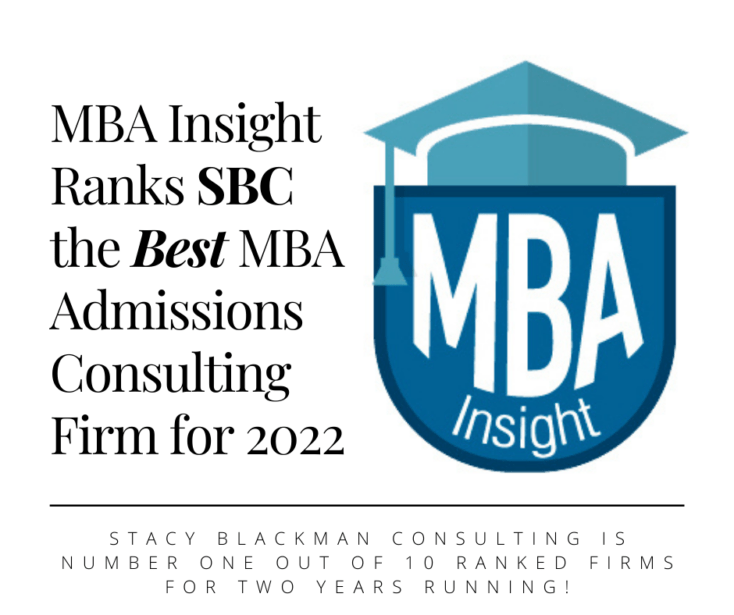 For the second year in a row, Stacy Blackman Consulting is honored to receive the top ranking in MBA Insight’s 2022 Best MBA Admissions Consultants list. To compile its comprehensive assessment, MBA Insight reviews extensive student testimonials. They take into account each student review and how they rated their MBA admissions consultant using a 1-to-5 star rating system. MBA Insight’s 2022 Consultant Ranking Here are just a few highlights and notable characteristics of MBA Insight’s admissions consultant rankings:
This evaluative tool can help you assess the value of an MBA admissions partner for your journey. Here are our most frequently asked questions, ranging from “can you get me into HBS” to “why should I hire SBC?” Testimonial from an MBA Class of 2023 admit: “Before deciding to go forward with SBC, I had initial talks with numerous other consulting firms. SBC stood out because of the matchmaking process, the entire team’s efforts toward your final application (through their helpful flight test), and their resources. I received interviews at 5 of the 6 schools I had applied for, and the SBC interview resources helped tremendously with my interview preparation. In addition, I’d like to add that the team at SBC was genuinely so kind and it really felt like they were on my side in this process. I had lots of ups and downs while applying (personally and professionally!) and the team continued to be there to cheer me on and push me forward. I ultimately got accepted to my dream school and cannot recommend SBC enough!” While scholarships for MBA programs are notoriously slim compared to other graduate programs, we continue to see an annual increase of about 10% in scholarship awards for our clients. Our client pool received$4.8 million in scholarship dollars last season. In fact, about 20-25% of SBC clients receive scholarship packages ranging between $10,000 to full-ride offers valued at $200,000. We’re on a mission to help you reach your most ambitious dreams and get into business school. Let us help you develop your game plan! Contact us today to request a complimentary 15-minute evaluation of your MBA candidacy. The post SBC Named 2022’s Best Admissions Consultant by MBA Insight appeared first on Stacy Blackman Consulting - MBA Admissions Consulting. |
| FROM Stacy Blackman Consulting Blog: Stanford GSB Interview Prep: Format, Criteria + Sample Questions |
|
[img]https://www.stacyblackman.com/wp-content/uploads/GSB-interview-advice-734x413.png[/img] If you’ve made it to the interview stage at the [url=https://www.stacyblackman.com/mba-application-advice/stanford-graduate-school-of-business/]Stanford Graduate School of Business[/url], congratulations are in order. As you well know, the GSB has the most competitive admission stats in the world. With a 7% admissions rate, receiving an invite proves that Stanford already considers you a strong candidate. Arguably more than any other program, Stanford looks for applicants who have formulated a worldview and understand who they are and what matters most to them. We asked, “What does Stanford GSB Admissions look for?” of the former [url=https://www.stacyblackman.com/about/mba-admissions-consulting-team/]Stanford GSB Admissions Officers[/url] (AdCom) on the Stacy Blackman Consulting team. Here’s the consensus: Stanford GSB seeks talented, diverse, and smart people who will make a significant impact in business and society. Stanford GSB students seem to have this ‘X’ factor associated with them, almost like an “unexpected” trait or experience. They take risks, push beyond the imaginable and lead with passion. Hire us for Stanford GSB interview preparation. Email us: [email=info@stacyblackman.com]info@stacyblackman.com[/email] to ask about availability. The Stanford interview invitation process can be stressful because it extends interview invitations on a rolling basis. For example, [url=https://www.gsb.stanford.edu/programs/mba/admission/interviews]Stanford[/url] extends interview invitations for round one applicants starting typically in early October and through the weeks of November. Erika on our team echoed this. “I have had clients get an invite on the final day of the range (which I believe is Nov 15 this year) for the past few years, so they really do send them throughout,” Erika notes. “I had a client get one at the start of the range and another last week, so it’s a little each day.” Stanford continues to read applications/issue interview invitations right up to the deadline. The interview invitation usually expects the applicant to schedule the interview within 10 days. [img]https://www.stacyblackman.com/wp-content/uploads/Stanford--734x489.jpg[/img] [b][/b]Sample Stanford GSB Interview Questions Across our client pool, we have seen the following questions consistently across interviewers from the GSB: [list] [*]Tell me a time when you were blocked on a project or had to navigate a particularly difficult person or conflict[/*] [*]Tell me about a time you built team culture[/*] [*]Why an MBA, why Stanford, and what after the MBA[/*] [/list] Likewise, we have consistently seen the following structural attributes across interviews from the GSB: [list] [*]Conversational but challenging in tone[/*] [*]Starts with general get-to-know-you questions[/*] [*]Behavioral questions[/*] [*]Opportunity to ask questions[/*] [/list] Stanford Interviewer Criteria Matrix Many of our SBC consultants have served as interviewers for Stanford GSB and have shared a sample interviewer assessment matrix here. Your interviewer will be assessing the following criteria during the exchange. Academic Strength *College academic record *Strong GMAT *Professional accreditation Intellectual Capacity *Judgment of recommenders/interviewer *GMAT *Professional performance from an intellectual perspective Leadership Potential: Will the Candidate Make a Difference in the World? *Strategic, innovative/creative, confident thinker *Not satisfied with the status quo *Curious, visionary *Ambitious, intense and sustained drive to succeed and make a difference in the world *Charismatic, good communicator, able to gain support from/inspire others *Competitive, tenacious *Decision making under uncertainty/stress, ability to assess risk *Versatile (function, knowledge), specialized talents (e.g., design, aesthetics, quantitative, verbal, social) *Execution capabilities in longer-term efforts requiring diverse resources *Maturity to understand that success requires aid from others (in addition to one’s own abilities and hard work) *Avoids hubris Management/Interpersonal Skills *Analytical acumen *Project management, results-orientation, sets clear directions *Strong work ethic, reliability, build respect *Interpersonal-collaborative instincts, manage up-down-sideways, build short and long-term relations, team spirit *Performance under pressure, multi-tasking *Culture carrier, mentor-trainer *Cross-functional management Globalization *Global/diverse perspectives · Commitment to cross-cultural intelligence · Additional languages · Introspective, sensitive Career Direction: Why *Pragmatism vs. ambition *Progression from past (function, skills, and/or industry) *Longer-term: recognizing and grasping opportunities, undertaking dreams *Halo/foundation of ethics (value construct, front-page test) *Peculiar strengths *Interests *Seek short vs. long-term rewards *Bored easily? *Social, collaborative aspects *Risk profile *What do they need to learn, skills *Network? Degree? *Geographic change Ambition: Why *Parents *Friends/peers *Defining moment *Role models *Work ethic? *How do they judge success? *What makes them happy? *Something they are afraid of? Why Choose Our School *Career, location, culture, alumni recommendation, global reputation, destiny? *Geography – U.S. “core” exposure *Management training How Would They Fit with the Class? *Engaged and engaging *Positive/optimistic, inspirational *Team player, perhaps team leader *Challenge each other, vigorous discourse, competitive *Specialized experiences/knowledge/skills to share *Personal appeal (range of potential styles), mostly social/fun Many are Qualified. Why Bring You into Our Family? *Will they make a difference? *Will they make a positive difference? *Career – for self and others? [Helps if they can develop an answer to a difficult question.] [img]https://www.stacyblackman.com/wp-content/uploads/Stanford-GSB-Knight_Management_Center-734x488.jpg[/img] [b]Stacy’s 6 Tips to Ace the Stanford GSB Interview[/b] 1. Show how you have made your indelible mark. Sharing stories about your past leadership achievements will help your interviewer gauge your potential for realizing your future ambitions. The scale of your achievement is less important than the fact that you have left indelible footprints in areas that matter to you. 2. Demonstrate passion and vision. You want to show that your reasons for applying to business school go beyond the goal of merely scaling the corporate ladder. During your interview, demonstrate that you have a talent for seeing greater possibilities and a track record of rallying others to embrace that picture of the future and work together with you to realize it. Your passions make you unique, and your achievements in these areas show the interviewer that you know what is truly important to you. 3. Show you are collaborative. Stanford wants to find out if you will thrive in its “give more than you take” culture. Do you have the dynamic energy and drive to get involved and give back even when it’s not strictly required? Do you have a track record of contributing to the causes and communities you care about? Then the admissions committee is likely to conclude you will make their student community stronger. [img]https://www.stacyblackman.com/wp-content/uploads/Stanford-graduation.jpg[/img] 4. Show that you have a global mindset. Candidates should emphasize their ability to find common ground and form effective relationships with people different from themselves. Applicants who can provide evidence that they not only survive but thrive in new, unfamiliar environments will be of particular interest to the admissions committee. Experience with the challenges of doing business globally, and a natural curiosity for learning more about other countries and cultures, will also be valued. 5. Demonstrate self-awareness. The ability to explain why you value one accomplishment above others, what you learned from a setback, or the deeper meaning of your career goals is evidence of self-awareness. The self-aware individual also knows their strengths and weaknesses. A quality that goes hand-in-hand with self-awareness is maturity. The fact that the admissions committee is seeking evidence of maturity suggests that you should be on the lookout for opportunities to share defining moments in your life during the interview. 6. Have a compelling answer for the ‘Why Stanford?’ question. While it’s true that the goals that made you apply to business school will be the same regardless of where you interview, how Stanford can help you achieve those goals should be something you have given serious thought to well before your interview. Your answers should demonstrate that you have done your homework on the program. That means you’ve interviewed students, alumni, and professors, sat in on classes, or regularly read several Stanford student and professor blogs. Use what you know about the program’s curriculum and philosophy to prove that Stanford can help you achieve your goals like no other program. Finally, know that interviewers will also expect that you have prepared thoughtful questions about the program for them to answer, so be sure to spend time planning for this portion of the interview as well. Avoid asking questions you could easily answer by looking at the admissions website, and use this opportunity to learn more about Stanford GSB from someone with firsthand knowledge. Stanford admits approximately 40 to 45 percent of interviewed candidates, so if you use these tips to help you craft your personal narrative and prepare for the exchange, you stand a good chance of convincing your interviewer that you deserve a seat in next year’s class. Hire us for Stanford GSB interview preparation. Email us: [email=info@stacyblackman.com]info@stacyblackman.com[/email] to ask about availability. [url=https://www.stacyblackman.com/mba-harvard-hbs-interview-prep-format-criteria-sample-questions/]HBS Interview Prep Advice from HBS AdCom[/url] [url=https://www.stacyblackman.com/hbs-interview-prep/]Hire us for HBS Interview Prep [/url] [url=https://www.stacyblackman.com/about/mba-admissions-consulting-team/]Who would my SBC interviewer be?[/url] The post [url=https://www.stacyblackman.com/stanford-gsb-interview-format-criteria-sample-questions/]Stanford GSB Interview Prep: Format, Criteria + Sample Questions[/url] appeared first on [url=https://www.stacyblackman.com]Stacy Blackman Consulting - MBA Admissions Consulting[/url]. [img]https://feeds.feedburner.com/~r/StacyBlackman/~4/3Y86I-4TFUU[/img] |
| FROM Stacy Blackman Consulting Blog: B-Schooled Podcast Episode #78: Unique Recommender Situations |
 Figuring out who you’ll ask to write your MBA recommendations is stressful enough without being in a professional situation that makes it especially difficult or awkward. This episode of B-Schooled shares advice on who might be the best kind of recommenders for those who work at a family company, are leading a startup and have no one above them, or who believe they’ll suffer consequences if their boss or team at large learns of their MBA plans. You can listen to episode #78 below, or on any of the podcast apps linked from this post. B-Schooled is available on most major podcast apps, including: Apple Podcasts Spotify Stitcher TuneIn Please be sure to subscribe to B-Schooled so that you don’t miss a thing. Also, if there’s something you’d like for us to cover in a future episode, please email podcast@stacyblackman.com. We’d love to hear from you! The post B-Schooled Podcast Episode #78: Unique Recommender Situations appeared first on Stacy Blackman Consulting - MBA Admissions Consulting. |
| FROM Stacy Blackman Consulting Blog: The Dreaded Ding |
|
[img]https://www.stacyblackman.com/wp-content/uploads/DING-734x314.jpg[/img] A few weeks ago, [url=https://www.stacyblackman.com/mba-application-advice/harvard-business-school/]Harvard Business School[/url] sent out its Round 1 interview invitations, along with “release” notices to the majority of applicants (and Round 2 deferral messages to some others). That means thousands of MBA hopefuls around the world recently received their first ding. Some people can easily shrug off this unfortunate news. But others have a tough time dealing with what they see as rejection. Are you one of the applicants who didn’t receive [url=https://www.hbs.edu/mba/admissions/Pages/from-the-admissions-director.aspx?post=round-1-next-steps]good news from HBS[/url]? If so, we want to remind you why you should keep your chin up. First off, all the top MBA programs are notorious for being extremely selective. It may be that out of every 100 people who submit materials, only 7 to 12 are accepted. In other words, it’s very much a numbers game when you’re applying to such competitive programs. There are only so many spots for an overwhelming number of thoroughly talented candidates. As such, former HBS dean Nitin Nohria would kick off his speech to new first-year students by saying that the school could’ve easily added an additional 900 candidates to the graduating class who were equally qualified. While admitted students were certainly accomplished and deserving, he believed a bit of luck played into their outcomes as well. That may be hard to accept for people who have always reached every single goal they’ve ever gone after. But it’s the truth. Once you’ve pulled together a strong application and hit “submit,” the process is out of your hands. You will never be able to do anything about who (or how many people) you were truly competing against. Or about who read your application and how they felt about it. The good news is that your results for a certain school are only the results for that school. They have absolutely no bearing on what you’ll hear from other programs. So, there’s no need to panic or to question your approach after a single ding. You should remain hopeful that positive news from another school may be right around the corner. Remember: [img]https://www.stacyblackman.com/wp-content/uploads/Success.jpg[/img] *** Stacy Blackman’s B-Schooled podcast recently dedicated an [url=https://www.stacyblackman.com/b-schooled-podcast-episode-76-what-to-do-after-a-ding/]entire episode[/url] to what to do after a ding. If you’re in that boat, don’t miss host Erika’s comprehensive advice for how to move forward. The post [url=https://www.stacyblackman.com/the-dreaded-ding/]The Dreaded Ding[/url] appeared first on [url=https://www.stacyblackman.com]Stacy Blackman Consulting - MBA Admissions Consulting[/url]. [img]https://feeds.feedburner.com/~r/StacyBlackman/~4/gRM_jwMtmkE[/img] |
| FROM Stacy Blackman Consulting Blog: SBC Celebrates its 20th Anniversary in MBA Admissions Consulting |
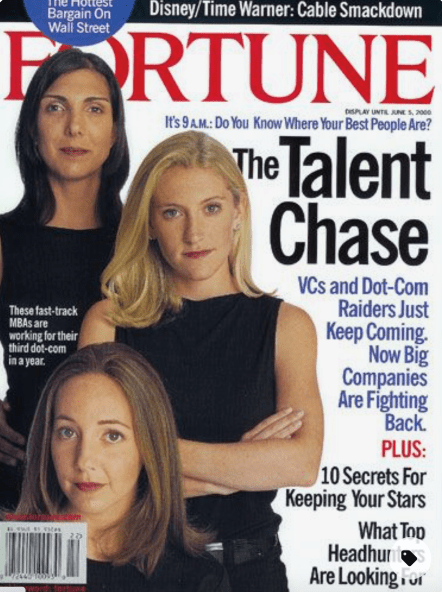 That’s me above the bar code as a Kellogg MBA student with my fellow dot-com co-founders. Stacy Blackman Consulting is now 20 years old, and this major milestone is making me feel a bit sentimental. So, today I’d like to share the SBC origin story and the tale of my very first client. I hope it will inspire you to pursue your wildest dreams, despite the roadblocks you may encounter. I started this company in my cramped San Francisco apartment and built the first website myself. Although I initially thought about changing the name to something “catchier,” I listened to my fellow Kellogg branding friends who advised against that. Next, I hired someone to make me a logo for $50, and we were off!  There was just one thing missing—a client. Luckily, Barak Salomon took a risk on me, and then it became official: SBC was born. I recently reconnected with Barak and learned about his career and life journey over the past 20 years. I loved hearing about the opportunities he encountered at b-school, the experiences he said yes to, the ups the downs, and the serendipity. His path has lessons for all of us. 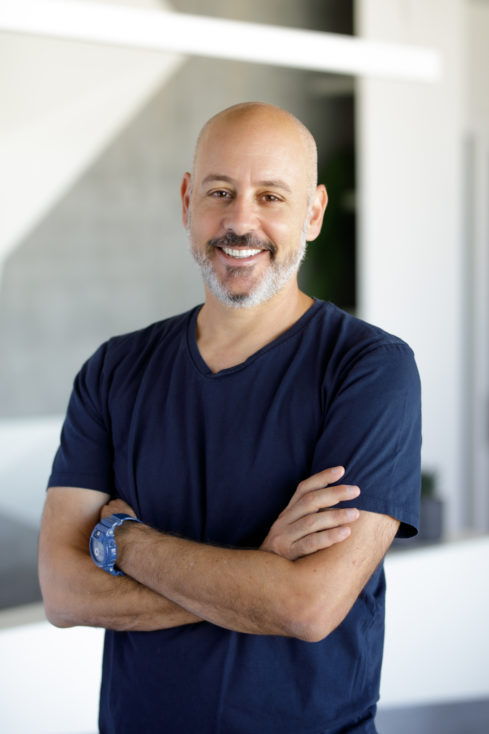 But first, let’s rewind to 2001. Barak had decided to apply to b-school late in the game, and we faced a daunting time crunch. He only wanted to apply to Boston-area schools due to life logistics, and that made MIT Sloan School of Management the best/only option. Barak was 33 when he started business school, putting him in the older 5% of his class. Add to that the fact that he didn’t have much in the way of traditional work experience under his belt due to several years spent in the Israeli army. In short, we had our work cut out for us. The first thing Barak confided in me when we caught up this fall was that, at the time, he had been hoping I would write his MBA essays for him. Frankly, he was disappointed when I just kept giving him homework! We strategized, figured out his unique story, and went through many iterations of those essays. Eventually, we felt satisfied that they showcased exactly why Barak would make a great addition to the class. It all paid off, and Barak joined the MIT Sloan MBA Class of 2004. 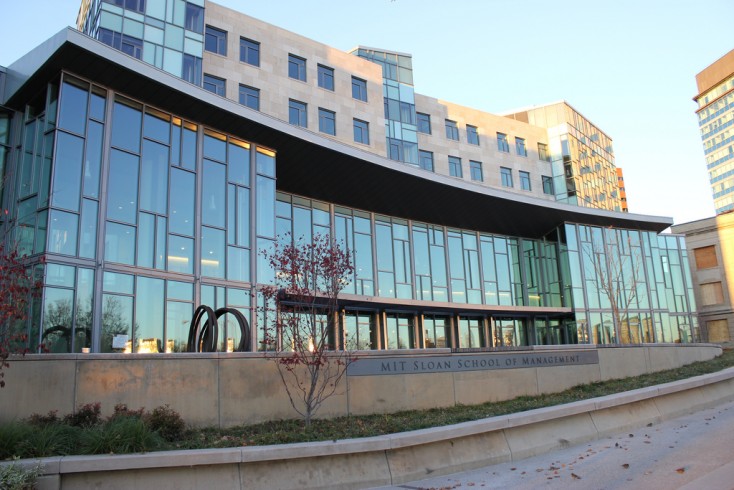 Looking back, he said business school was a fantastic experience, but only the beginning of his journey. While it opened doors, it was not a so-called golden ticket. Barak had to work incredibly hard while he was at Sloan, and afterward, too. For instance, Barak shared a hilarious story about how he landed his MBA summer internship. His first interview was with Boston Consulting Group, but unfortunately, he didn’t make it to the second round. Despite that, Barak decided to attend a BCG reception to take advantage of the complimentary sushi buffet. During the event, they did a presentation dissecting a case study on Heinz ketchup. The next day, he had his second consulting interview with Bain, where he received the very same case to analyze! Naturally, he killed it, and Bain made him an offer. Although they wanted to place him in their CPG practice, Barak really wanted to work in private equity. So, he asked…and he received. He had a fantastic summer in New York working at Bain.  After graduation, Barak returned to Israel to work for a private equity firm. Two years later, they closed the office, and he got laid off. Next, he joined forces with two colleagues and bought a majority stake at a low-tech company. During that time, he also became NTT Docomo Ventures’ Israeli Partner. “After five years of blood, sweat, and tears, we had to sale the company with a lost,” which, in Barak’s words, “was really hard and broke his heart.” Even in retrospect, he said he struggles to find the gift in that failure. It was an excruciating time; on top of it he was juggling family life with four young children. Barak said that when he graduated from MIT Sloan, he had wanted to work in Asia. But at the time, his wife was pregnant with baby #2, and it made more sense for them to return to Israel. Sometimes, a bit of patience is the key to reaching your goals. In 2018, Barak joined Red Dot Capital Partners, an Israeli early-growth VC, which has deep roots in Singapore (Temasek is Red Dot’s largest investor). He is now one of the Managing Partners leading the technology investments and absolutely loves it. Barak endured a very bumpy and winding road to get to where he is today. But it sounds like he’s definitely living the good life now! Here are some life lessons we can all take from Barak’s journey:
 The post SBC Celebrates its 20th Anniversary in MBA Admissions Consulting appeared first on Stacy Blackman Consulting - MBA Admissions Consulting. |
| FROM Stacy Blackman Consulting Blog: Making the Most of the MBA Data Form |
 You’ve finalized your resume and secured your undergrad transcript. Your recommenders are working on their letters, and your essays are well underway. What’s next to tackle in the typical b-school application? The MBA data form. The data form consists of drop-down menus, checklists, informational fields, and short-answer responses that give the adcomm a quick overview of who you are. They’re also likely to be the first thing reviewed in your package. This means they create the reader’s initial impression of you. That’s why it’s important not to complete the data form in a rush right before the program’s submission deadline. MBA Data Form Blunders These two problems commonly arise when you hurry through a data form:
For short-answer responses—meaning fields where you have anywhere from 50 to 2,000 characters for your answer—you should think through what information you’ve provided in the rest of your materials and then try to either complement or expand upon it in the data form. Think of each part of your application package as an opportunity to strengthen your candidacy and tell the admissions committee something new. Applicants often overlook the data form’s possibilities because it seems so straightforward and, well, boring. But we view it as an easy way to make a positive first impression. Looking for more concrete advice? We covered common MBA data form questions (about the employment, salary, awards, and activities fields, as well as various dropdowns) and provided several additional tips for how to make the most of the data form on our B-Schooled podcast’s episode #21, which you can find on Apple Podcasts, Spotify, Stitcher or TuneIn. Remember: 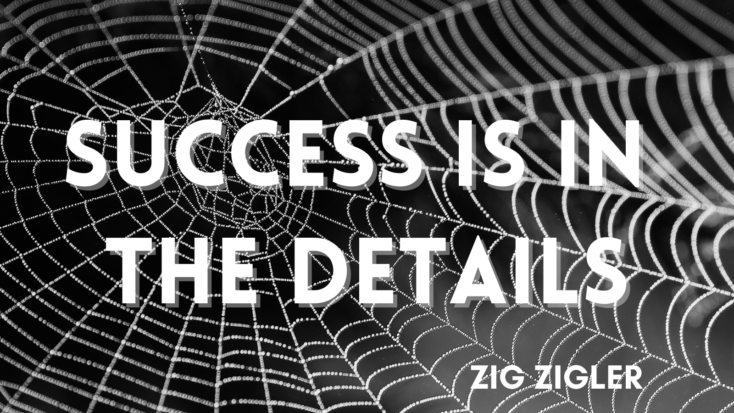 Until next time, The team at Stacy Blackman Consulting *** If you enjoyed this post, please sign up for the SBC newsletter, where you’ll receive our expert advice on all aspects of the MBA application process delivered straight in your inbox each week. The post Making the Most of the MBA Data Form appeared first on Stacy Blackman Consulting - MBA Admissions Consulting. |
| FROM Stacy Blackman Consulting Blog: B-Schooled Podcast Episode #79: Interview with Cooper, CMU Tepper Student |
 Last year, Cooper worked with SBC on his MBA applications in Round 2 of the 2020-21 admissions cycle. He knew he had a lot working against him: he was just out of undergrad, had a lower-than-average GMAT and GPA, was coming from a non-feeder college, and was in an overrepresented demographic bucket. In this episode, he shares insights he gleaned through the application process, what he thinks ultimately helped him gain admission to Tepper, as well as a little bit about his experience there so far. You can listen to episode #79 below, or on any of the podcast apps linked from this post. B-Schooled is available on most major podcast apps, including: Apple Podcasts Spotify Stitcher TuneIn Please be sure to subscribe to B-Schooled so that you don’t miss a thing. Also, if there’s something you’d like for us to cover in a future episode, please email podcast@stacyblackman.com. We’d love to hear from you! The post B-Schooled Podcast Episode #79: Interview with Cooper, CMU Tepper Student appeared first on Stacy Blackman Consulting - MBA Admissions Consulting. |
| FROM Stacy Blackman Consulting Blog: The Importance of Selecting the Right Location for Your MBA |
 Sponsored Post by UNC Kenan-Flagler Business School Echoing the mantra of realtors everywhere, location matters when it comes to choosing an MBA program. Fortunately, you can find top business schools in teeming metropolises, the bucolic countryside, and everywhere in between. Since you’re going to spend two years of your life pursuing an MBA, it makes sense to give considerable thought to what lifestyle and environment suit you best. For many b-school hopefuls, UNC Kenan-Flagler Business School in Chapel Hill, North Carolina, is the Goldilocks of settings for graduate management study. An Epicenter of America’s Economic Boom The southeastern corridor of the United States has experienced explosive growth in recent years. According to the U.N.’s 2018 World Urbanization Prospects report, three of the top 20 fastest-growing U.S. cities are in North Carolina. Chapel Hill is part of the dynamic , whose “points” include Durham—an entrepreneurial hotbed—and Raleigh, the state capital.  The Research Triangle region is home to global corporations as well as startups, small and midsized firms, and nonprofits. In Raleigh alone, you’ll find more than 500 startups spanning sectors such as software, automated marketing, life sciences, consumer packaged goods, media/design, and IoT device manufacturers. The growth and energy level in North Carolina are palpable and incredibly infectious. What does all this growth mean for anyone eyeing the region for their MBA studies? Four things: excellent schools of higher education, and jobs, jobs, and more jobs. The region is a significant lure for bright minds interested in healthcare, technology, biotech, pharma, and green technologies.  “The economic boom that the Triangle, Charlotte and more broadly North Carolina are experiencing also finds its way into our classrooms,” says marketing professor . “We have deep, multi-faceted relationships with these firms, from their hiring of interns and graduates to tapping their expertise as career mentors, speakers in classes and at conferences.” Venkataraman, who also serves as the Assistant Dean of the Full-Time MBA program, notes that the program’s increasing emphasis on experiential learning offers MBA students ample opportunities to partner with companies in North Carolina and beyond. “There is nothing more exciting and satisfying than for students to see their work being recognized by industry leaders and seeing their work in action at companies like RedHat, Burt’s Bees, Newell Rubbermaid and at promising startups,” Venkataraman says. “Many students get recruited by these firms.” 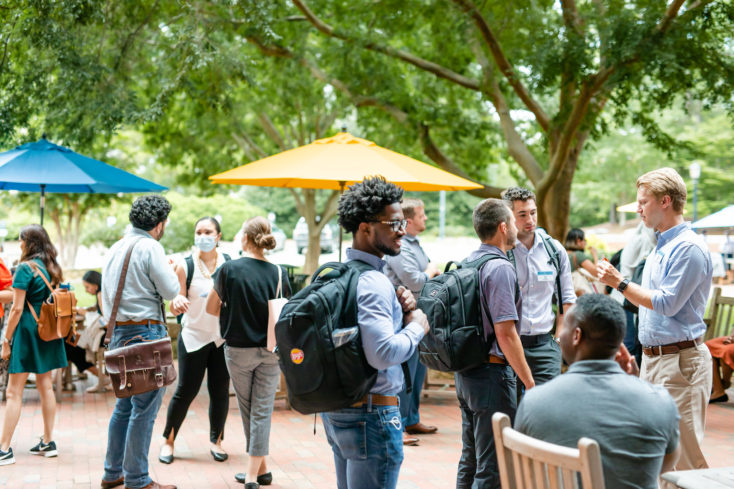 “Our students also benefit from the strong Triangle alumni community that includes graduates of all of our programs, who are leaders in their fields,” Venkataraman adds. “All of this makes for a powerful network of businesses, large and small, that track with our students’ career interests.” Are you interested in founding your own firm post-MBA? Then this, too, is the right place for you, Venkataraman notes, as the area is a magnet for the next generation of entrepreneurs. With more and more financial institutions and technology companies calling North Carolina home, many predict this region will become the next Silicon Valley. What’s the Feel of Chapel Hill?  For countless MBA students, the overall vibe is what initially draws them in. Evanne Timberlake (MBA ’22) calls Chapel Hill a quintessential college town with a warm, welcoming community. “Chapel Hill is a truly wonderful place to live, especially while in school,” Timberlake explains. “Along with the excellent reputation of the program, the cost of living, quality of life, and weather were a few of the most important factors I considered about each school when applying.” “I considered other programs,” Timberlake says, “but when it came down to it, I believe so strongly in Carolina’s sense of community and belonging that I followed my heart and chose UNC Kenan-Flagler.” Celebrated for its temperate climate, flourishing foodie scene, and friendly locals, the Triangle offers students a vibrant atmosphere without the urban grind. “Chapel Hill is large enough (and very close to bigger cities) that we have great food, art, things to do, and culture,” Timberlake explains, “but small enough that the cost of living is still very reasonable.” We’d be remiss if we didn’t mention the college sports scene in Chapel Hill. UNC is nicknamed the for a reason, having won 46 NCAA Division I team national championships. Expect to root for the Tar Heels to crush Duke’s Blue Devils come basketball season. Their is the stuff of legend. Nature lovers can’t stop raving about the scenic beauty of the region. There are few places in the world where, within a three-hour car ride, you can be at a renowned ski town, or surfing on a world-famous beach, or mountain biking through one of the most picturesque trails in the world. Within 15 minutes of campus, you can kayak on North Carolina’s stunning Jordan Lake. “MBA applicants are placing greater emphasis on maintaining a healthy work-life balance,” Venkataraman says. “I strongly believe the quality of life and breathtaking natural beauty of the Triangle and North Carolina more broadly will be an even more important draw for the next generation of transplants to this area.” 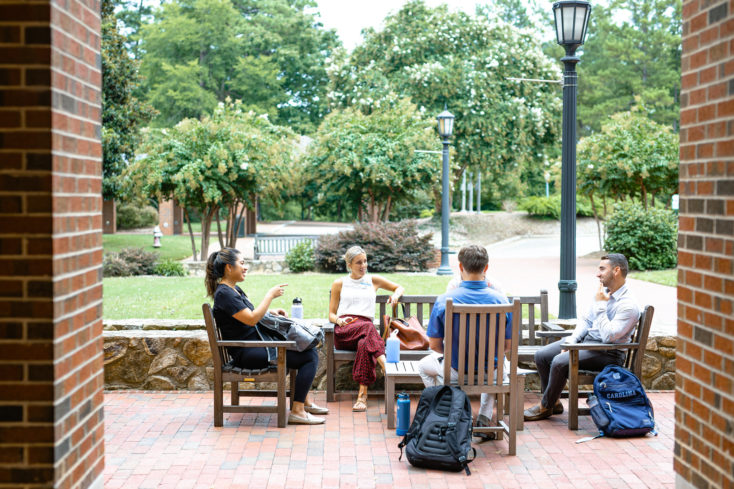 Ambitious, but never at the expense of others. While you can receive an excellent MBA education at any top business school, Timberlake believes that school location plays a crucial role in both the overall career boost and your happiness while in the program. “Compared to major cities, it is extremely affordable to live in Chapel Hill and have a wonderful quality of life,” she explains. “The career development and recruiting opportunities we have available are wide, both from an industry and location perspective, and we benefit from strong employer relationships to UNC Kenan-Flagler and our location within the innovation-rich Research Triangle region.” For many business school hopefuls, pursuing an MBA is about more than switching careers or advancing up the proverbial ladder. “Today’s MBA aspirants are looking for things beyond job placements—they’re seeking a transformative experience,” Venkataraman notes. This involves collaborating with peers inside and outside of class and engaging with local business leaders on projects that look beyond profit motives and become more purpose-driven. 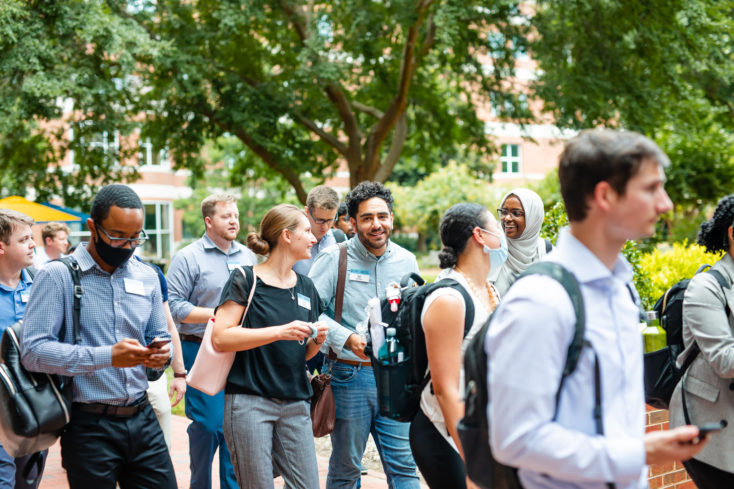 Finally, when asked what kind of people will feel most at home in Chapel Hill, Venkataraman ticks off a significant swath of the population. “If you want to be close to a city but don’t want to deal with the day-to-day grind of places like New York, Chicago, Atlanta, or San Francisco, this is the place for you. If you love hanging out with other young minds from all parts of the world, then this is the place for you. Eager to raise your family in one of America’s most thriving yet affordable cities? New to America, and still trying to assimilate? Love the outdoors? Then this is the place for you.” “If you are soul searching and looking for your inner calling,” says Venkataraman, “then this is the place for you.” To glimpse what life is like in Chapel Hill, check out from UNC Kenan-Flagler Business School. Raleigh at night image by NCDOTCommunications (CC BY 2.0) The post The Importance of Selecting the Right Location for Your MBA appeared first on Stacy Blackman Consulting - MBA Admissions Consulting. |
| FROM Stacy Blackman Consulting Blog: Interview Advice for Wharton MBA Applicants |
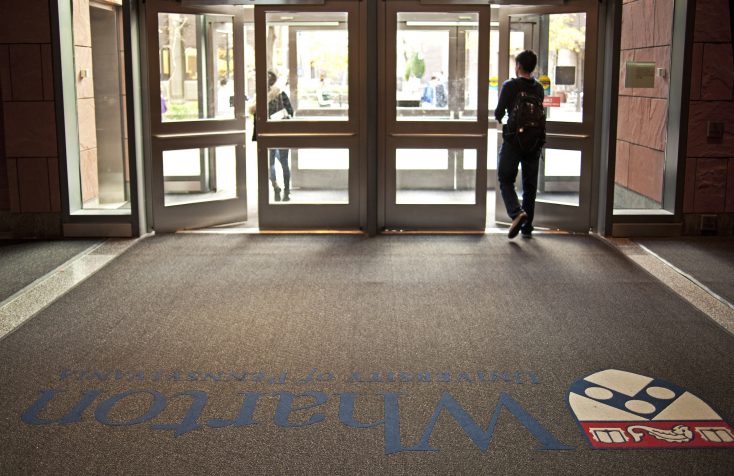 The admissions odds are especially competitive at business schools such as the University of Pennsylvania’s Wharton School. Last cycle, it received 7,338 applications and enrolled just 897 students for the Class of 2023. With competition so fierce, preparation is key. Time to share SBC’s interview advice for Wharton! The school released its R1 interview invites on Wednesday, October 27th. As consultants who help clients earn admission to top MBA programs, we know first-hand the importance of interviews. Wharton interviews approximately 40 percent of applicants, and about one-in-3 ultimately receive an offer of admission. What’s more, no student is admitted without an interview. They are a key component of how the admissions committee gets a full picture of you as an applicant. Also, it’s how the adcomm evaluates whether you’ll fit into the Wharton community. At SBC, our team includes two former Wharton Admissions Officers. Both of them offer mock team-based (aka the Wharton TBD) interviews for Wharton interviewees exclusively through SBC’s services. Our interview advice for Wharton offers these three tips that will show off your assets and skills to their best advantage.  1. Prepare for the team-based discussion. Wharton was among the first business schools in the US to implement a team-based discussion component as part of the interview process. In it, five to six applicants discuss a topic while admissions committee members observe. Until further notice, Wharton will conduct virtual TBD’s for 2021-2022 applicants. Candidates will meet their team on a remote conferencing tool instead of in a physical space. All of the candidates (5-6 per group) will participate virtually from various locations. This aspect of the application process attempts to get a holistic sense of you, outside of a well-written essay or even a well-rehearsed interview. Wharton looks for team players and people who can be analytical while working well with others. Keep in mind that observers want to see candidates contributing without dominating the discussion. The idea is to see how you might engage in a productive conversation with a group of future classmates. To leave a positive impression, make sure to share your point of view and listen thoughtfully. Respect differing points of view and bring others into the conversation. 2. Emphasize your experience as an innovator. Innovation is integral to Wharton’s brand. This doesn’t have to mean you’ve invented the next billion-dollar app or founded a company. But it does denote someone who creates something that has not existed before — whether that’s a new product, process, or way of seeing the world.  Think of ways you’ve acted as a “change agent” in your workplace or community. Wharton seeks dynamic, energized students who look to change industries, economies, and even their countries. Find examples of how you’ve seen the potential to make things better — and taken action to create positive change. 3. Show your aptitude for thriving in a global environment. Approximately 40% of Wharton’s students hail from countries outside the US. Having an awareness and appreciation of other cultures is key to an applicant’s ability to survive and thrive at Wharton and in today’s multinational world of business. Showing global awareness isn’t necessarily about the number of stamps on your passport. Rather, it’s about showing that you thrive in new and unfamiliar environments. Also, it shows you can successfully navigate the challenges of competing in a global marketplace.  If your career goals transcend borders, make sure to share your planned career path. Also, if you have experience working with global teams, provide examples of challenges and successes. Above all, an honest curiosity and willingness to learn about other cultures and countries will go a long way. Ultimately, you shouldn’t think of interviews for Wharton or any other top business school as just another hurdle standing in the way of your MBA. Instead, realize this is how the admissions committee tries to get to know you better. The interview allows you to connect the dots of your personal narrative and tell your story in your unique voice. Emphasizing your strengths and experiences as they relate to qualities that are important to each school’s learning community will help show how you’ll fit in and be a contributing member and, indeed an asset, to that school’s learning community. Now that you’ve seen our interview advice for Wharton, it’s time to start practicing! Recruit a friend or family member to conduct mock interviews with you. Or, contact us to learn more about our group interview prep services. If you’re prepared to work well with a team, emphasize innovation in your approach, and share your global perspective, you could find yourself on the positive side of Wharton’s competitive interview and application process. This previously published post has been updated with new information for the 2021-2022 season. The post Interview Advice for Wharton MBA Applicants appeared first on Stacy Blackman Consulting - MBA Admissions Consulting. |
| FROM Stacy Blackman Consulting Blog: MIT Sloan MBA Interview Advice |
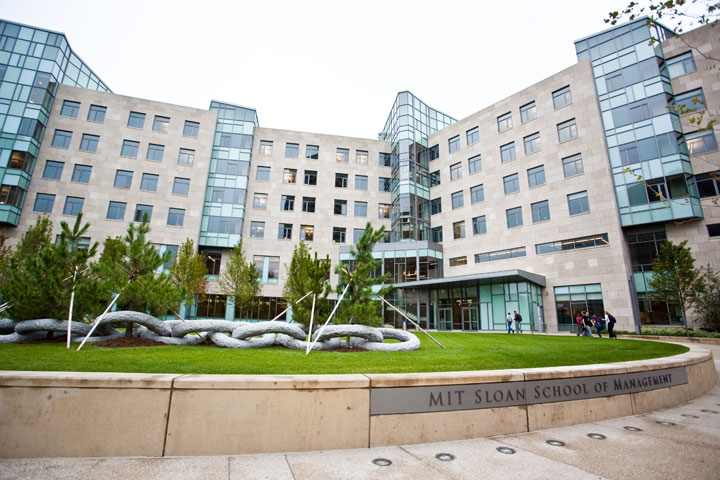 We’re on the cusp of MBA interview season at MIT Sloan School of Management. Dawna Levenson, assistant dean of admissions, has some tips to help nervous applicants prepare for the MIT Sloan MBA interview. This year, all interviews will take place virtually weekdays during business hours in local Boston time. These Zoom interviews will last approximately 30 minutes. In previous years, Levenson has noted that the MIT Sloan adcomm interviews around 20–25% of the Round 1 applicant pool. Those invited to interview will be asked to respond to two additional questions prior to the interview. Details for submitting your essay will be included in the interview invitation. MIT Sloan emails interview invitations on a rolling basis up until the decision deadlines. For Round 1, that is December 15, 2021. What to Expect During the MIT Sloan MBA Interview In this video, Levenson explains that she thinks of the interview as having three components. In the first portion, your interviewer will clarify any remaining questions about your application. This might include anything on your resume, within your essays, or in the pre-interview questions. The majority of the interview will focus on behavioral questions. Here, they will ask you to reflect on how you handled specific experiences in the past. For example, “Tell me about a time when you were part of a team working on a project, and the project started not to do so well. How did you recognize that, and how did you turn it around?” You’ll also have a chance to talk about your experiences as a leader and as a teammate. “We believe your past experiences are some of the best indicators of future successes.” —Dawna Levenson For more guidance, you can check out our B-Schooled podcast episode #28, which goes in-depth on how to answer behavioral interview questions. Also, applicants should be prepared to answer these questions: “Why an MBA” and “Why MIT Sloan is the best match for you” during their interview. Finally—and Levenson called this perhaps the most important part of the interview—comes the opportunity for you to ask questions of your interviewer. These questions should be relevant to you and your interests, she advises. Levenson stresses that you should avoid asking anything you can easily find answered by browsing the school website. Her biggest tip: It’s important to be yourself. Think of this as a conversation between you and your interviewer. Who conducts the interview? Many other business schools have a blind interview process. Not MIT Sloan. All interviewers are members of the admissions committee—not alumni or students—and therefore will have reviewed your application and watched your video before meeting you. 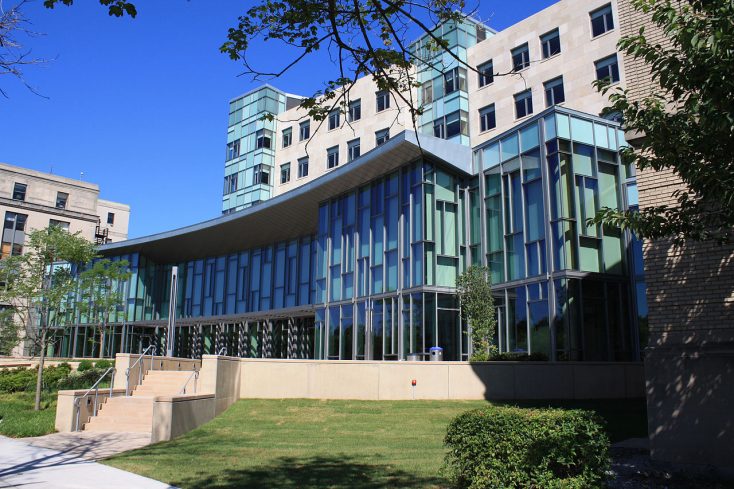 Candidates should come armed with stories and experiences not already touched upon in the application or essays. These stories should convey your passions and interests. Applicants should have a well-rounded suite of examples ready to deliver as answers. They should also have a level of detail and depth for each of their examples that will satisfy a more inquisitive admissions interviewer. Besides focusing on the quality of an applicant’s answers, the admissions committee is also evaluating your potential fit. Here, you need to combine your research and a clear understanding of your profile strengths to deliver nuanced and impactful answers. “At MIT Sloan, we’re looking to create a diverse class of students,” Levenson says. “There is no one size fits all.” It should go without saying, but you still need to dress professionally for a virtual interview. Also, be mindful that the adcomm pays attention to every interaction you have with the school. From your application to the day of your interview, to the thank-you note you send afterward, all of it will help Sloan evaluate your fit with the school. This previously published post has been updated for the 2021-2022 admissions season. The post MIT Sloan MBA Interview Advice appeared first on Stacy Blackman Consulting - MBA Admissions Consulting. |
| FROM Stacy Blackman Consulting Blog: B-Schooled Podcast Episode #80: Spotlight on Wharton |
 If you’re applying to Wharton or will be interviewing with them soon, don’t miss this week’s discussion with Anthony Penna, an SBC admissions consultant who spent 10 years with the Wharton School in Career Management and as Associate Director of Admissions for the full-time MBA program. Today’s episode will cover strengths and unique aspects of the Wharton program, among other topics. If you’re interested in a deep-dive on Wharton’s Team-Based Discussion method, please check out episode 42, which also features Anthony. Listen to B-Schooled episode #80 here, or on any of the podcast apps listed below. B-Schooled is available on most major podcast apps, including: Apple Podcasts Spotify Stitcher TuneIn Please be sure to subscribe to B-Schooled so that you don’t miss a thing. Also, if there’s something you’d like for us to cover in a future episode, please email podcast@stacyblackman.com. We’d love to hear from you! The post B-Schooled Podcast Episode #80: Spotlight on Wharton appeared first on Stacy Blackman Consulting - MBA Admissions Consulting. |
| FROM Stacy Blackman Consulting Blog: Do You Have Executive Presence? |
|
[img]https://www.stacyblackman.com/wp-content/uploads/pexels-the-lazy-artist-gallery-999267-734x431.jpg[/img] [b]“FRESH IDEAS FROM THE BLACKLIGHT”[/b] SBC’s Weekly Newsletter for Professionals What is executive presence? The answer is often a maddening, “I can’t define it, but I know it when I see it.” Not exactly helpful for anyone trying to grow professionally. In essence, a person with executive presence has mastered the most critical “C’s” of leadership. They are excellent communicators who are also credible, confident, and composed. Today, we aim to demystify executive presence by explaining why it’s essential and how you can amp up your own “EP.” Cultivating Executive Presence Let’s take a closer look at each of the critical elements that make up this desirable designation. Credibility When people see you as credible, you can influence them to become more receptive to your ideas. But building up your credibility takes time. Early career professionals need to rely on expertise in their roles to communicate such authority. When you speak, do you sound like an expert on the subject at hand? Professor [url=https://insight.kellogg.northwestern.edu/article/executive-presence-how-to-develop-yours]Brooke Vuckovic of the Kellogg School of Management[/url] says, “Especially early on in your career, intellectual horsepower is essential.” You can boost your credibility with preparation and by showing integrity, she adds. Confidence You won’t convey credibility if you don’t display confidence.[b] [/b]When someone with strong executive presence speaks, others take note. You do not doubt the conviction behind their words. They project a certain gravitas that automatically commands the respect of everyone in the room. [img]https://www.stacyblackman.com/wp-content/uploads/pexels-thisisengineering-3861962-2-734x489.jpg[/img] Body language is vital when it comes to how others perceive you. So, make sure to maintain good posture and eye contact. Former Harvard Business School professor Amy Cuddy’s well-known TED Talk explains how holding a [url=https://youtu.be/r7dWsJ-mEyI]two-minute “power pose”[/url] before a job interview can positively affect the interviewer’s perception of you. Anyone suffering from [url=https://theblacklight.co/2019/04/11/impostor-syndrome/]Imposter Syndrome[/url] will benefit from Cuddy’s confidence-boosting advice. Oh, and don’t confuse confidence with having an out-sized ego. With executive presence, “what we’re looking for is true confidence and true humility,” says Vuckovic. In the words of C.S. Lewis, “Humility is not thinking less of yourself, it’s thinking of yourself less.” Composure Being able to control your emotions and recognize emotions in others is a crucial component of executive presence.[b] [/b]Great leaders remain calm and composed under pressure. Self-awareness is paramount. No one wants a [url=https://theblacklight.co/2020/12/03/jerk-at-work/]boss with a hot temper[/url] or who falls apart when things go sideways. Make sure you are eating and sleeping well, have social support, and make time for movement in your day. These things will help build your capacity for resilience under stress. – Professor Brooke Vuckovic When you stay calm and focused on the crisis at hand, others will take note. Teams you manage will trust your ability to handle any situation, making them less anxious and more productive. If you struggle with maintaining composure, try out some of these tips on [url=https://www.health.harvard.edu/blog/how-to-handle-stress-at-work-2019041716436]managing stress at work[/url] from the Harvard Health Blog. [img]https://www.stacyblackman.com/wp-content/uploads/pexels-andrea-piacquadio-3772612-734x489.jpg[/img] Communication Skills People who radiate executive presence have top-notch communication skills. They can concisely articulate their thoughts and use tone and word choices that strengthen their message. They’ve also mastered the power of the [url=https://theblacklight.co/2021/06/17/silence-in-negotiations/]three-second pause[/url], so their words have more impact. Communicating with [url=https://theblacklight.co/2021/06/03/we-need-more-humor-at-work/]humor[/url] is also a huge plus. And none other than Warren Buffett considers public speaking the [url=https://www.inc.com/carmine-gallo/the-one-skill-warren-buffett-says-will-raise-your-value-by-50.html]most valuable skill[/url] anyone can build. Who are we to argue with the Oracle of Omaha? When you have executive presence, you speak with confidence, gain respect, and influence others to achieve a common goal. But in the end, no level of executive presence can compensate for lack of ability, Vuckovic warns. “These elements of presence are particularly important when you are interacting with someone for the first time or on a superficial level or you just see them quarterly for client meetings,” she explains. On the other hand, “those people around you will have a much more complete picture and, ultimately, are going to judge you by the quality of your work and contributions.” *** Huzzah! You made it to the end of the post! This tip sheet on how to cultivate executive presence appeared initially on [url=https://theblacklight.co/newsletter/]the Blacklight[/url], our weekly newsletter for professionals. At the Blacklight, we [url=https://www.stacyblackman.com/blacklight-career-hacks-life-inspo/]aim to illuminate[/url] with every dispatch that lands in your inbox. If you’re thirsty for guidance to help you slay it at work or as a student and move your goalposts closer, [url=https://theblacklight.co/]sign up[/url] today! The post [url=https://www.stacyblackman.com/executive-presence/]Do You Have Executive Presence?[/url] appeared first on [url=https://www.stacyblackman.com]Stacy Blackman Consulting - MBA Admissions Consulting[/url]. [img]https://feeds.feedburner.com/~r/StacyBlackman/~4/yhnTd7rUMwI[/img] |
| FROM Stacy Blackman Consulting Blog: Stanford MBA Acceptance Rate, Deconstructed |
|
[img]https://www.stacyblackman.com/wp-content/uploads/Stanford-GBS-Knight-Management-Center-734x486.jpg[/img] Stanford’s Graduate School of Business is the most competitive MBA program in the world. Just how hard is it to get into the GSB? Well, the Stanford MBA acceptance rate typically hovers between 6%-7%. Despite the upheaval triggered by the pandemic, the GSB continues to hold massive appeal for applicants. Of course, all of the elite M7 MBA programs have advantages that allow them to overcome challenges, as [url=https://poetsandquants.com/2021/02/01/m7-mbas-business-schools-in-2020/]Poets & Quants[/url] points out. To help demystify the Stanford MBA acceptance rate drivers, we decided to evaluate SBC client data from recent seasons. Our findings show that the admit patterns by Stanford GSB have become increasingly reliant on qualitative aspects, in addition to application essay strength and a broader range of applicant attributes. (This also held true for the retrospective analysis we did for [url=https://www.stacyblackman.com/harvard-business-school-acceptance-rate-deconstructed/]HBS admits[/url].) An applicant’s personal narrative is often the most influential factor in the admissions decision process at Stanford GSB. It can be even more predictive of admissions success than rigid categories such as college type, test score, or employer. [b]Our process:[/b] To preserve anonymity for our client pool, we’ve deconstructed each of our client profiles across these criteria: [list] [*]Nationality[/*] [*]Industry[/*] [*]Employer[/*] [*]College[/*] [*]GPA[/*] [*]Test scores[/*] [*]Other distinguishing factors[/*] [/list] Our consultants have shared client attributes for each of these criteria, and we’ve aggregated the outcomes for the GSB admits according to personal, extracurricular, and professional domains. These visuals showcase the kaleidoscope of qualities found in Stanford GSB admits across a sampling of recent SBC clients. [img]https://www.stacyblackman.com/wp-content/uploads/Screen-Shot-2021-11-03-at-6.01.23-PM.png[/img] [img]https://www.stacyblackman.com/wp-content/uploads/Screen-Shot-2021-11-03-at-6.01.37-PM.png[/img] [img]https://www.stacyblackman.com/wp-content/uploads/Screen-Shot-2021-11-03-at-6.01.45-PM.png[/img] Overcoming the Stanford MBA Acceptance Rate Odds We asked “What does Stanford GSB Admissions look for?” of the former Stanford GSB Admissions Officers (AdCom) on our [url=https://www.stacyblackman.com/about/mba-admissions-consulting-team/]Stacy Blackman Consulting team[/url]. Here’s the consensus: Stanford GSB seeks talented, diverse and smart people who will make a significant impact in business and society. Stanford GSB students seem to have this ‘X’ factor associated with them, almost like an “unexpected” trait or experience. They take risks, push beyond the imaginable and lead with passion. [img]https://www.stacyblackman.com/wp-content/uploads/Stanford-GSB-Knight_Management_Center-734x488.jpg[/img] We asked the same former Stanford GSB Admissions Officers, “What does Stanford GSB Admissions want to avoid?” Their answer: People who are looking at an MBA as merely the expected step in getting credentials for their next job in a corporate/firm ladder and/or the hyper-competitive types. The former GSB AdCom team at Stacy Blackman Consulting added: GSB’s smaller size means that it is more conscious of class balance and diversity. GSB is more willing to consider candidates that took risks, failed, learned from their experiences, and returned more resilient than ever. First-Hand Feedback from a GSB Admit As a recent [url=https://www.stacyblackman.com/comprehensive-services/]All-In package[/url] client and now GSB admit shared, “The GSB is choosing [url=https://www.stacyblackman.com/guides/strategy/stanford/]a range of people to invest in[/url] because of their future potential to change the world. Perhaps they’ve already shown a history of doing so, but other times they haven’t. Instead, those applicants show a promising trajectory that they’ll get there in the future. Stanford cares a LOT that students have a genuine interest in making some larger, positive, social impact on the world. Yes, the point of business school is for your own career advancement. But GSB wants that career advancement to amount to broader social advancement, too.” She adds, “Maturity and self-awareness are key! Ultimately, your experiences probably aren’t that unique, given the huge number of applications programs will get every year. But it’s how you frame them, reflect on them, and use them to showcase yourself that will set you apart from others.” [url=https://www.stacyblackman.com/contact/]Request a free consultation[/url] with a Principal on our team to assess school fit and Stanford GSB admit odds. The post [url=https://www.stacyblackman.com/stanford-mba-acceptance-rate-deconstructed/]Stanford MBA Acceptance Rate, Deconstructed[/url] appeared first on [url=https://www.stacyblackman.com]Stacy Blackman Consulting - MBA Admissions Consulting[/url]. [img]https://feeds.feedburner.com/~r/StacyBlackman/~4/5as5H8_3ueQ[/img] |

|
|
||